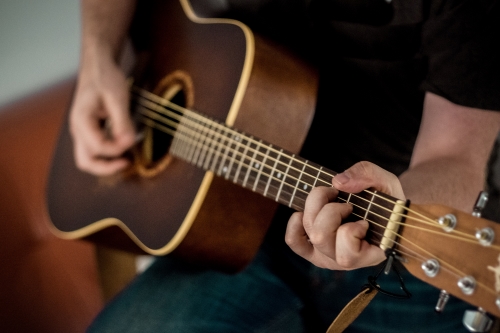Welcome back, book-writers! So far in this Inception to Completion series we have discussed outlining, writing your first chapter, and how to power through hitting a wall. All of this advice has been very active, intending to get you from one phase of writing your novel to the next as quickly as possible.
But today we’re going to talk about those times in the writing process when you need to slow down. I know how tempting it can be to try to keep going, going, going. You feel that momentum and are afraid that if you stop for even a second, you’ll lose it.

In reality, the opposite tends to be true. If you keep trying to push and push, you will burn yourself out. Then you’ll need to take even more time to recover than if you had just allowed yourself a break in the first place.
Sure, there is the rare occasion that you will be able to churn a book out in a few weeks and be none the worse for wear. More often than not, though, you will find yourself needing to take a break every now and then.
After spending a few days or weeks or months diving deep into your story, you may be at a loss when it comes to engaging in some self-care. Here are a few things you can try.

Take a Walk
Earlier in the series we discussed how helpful walking can be in the novel-writing process. Back then I was referring to using a walk to think about your characters and the big picture of your story. The kind of walking I’m talking about now doesn’t involve thinking about your writing at all.
Instead, these walks are all about taking care of yourself. On these walks I enjoy listening to podcasts—usually something funny like Conan O’Brien Needs a Friend. It’s distracting, puts a smile on my face, and makes dragging myself out of the house in less than ideal weather easier. Other times I enjoy some of my favorite music, or use my “Discover Weekly” playlist on Spotify to find some new songs.
If you are able to enjoy the sunshine (and are less in need of distraction than I am), you can also simply stroll through a park or a picturesque neighborhood and admire the sights around you. The important thing is going outside a few times a day so you can get some fresh air, sunlight, and exercise.

Meditation
I’m sure some of you groaned at the sight of this activity. I know because I used to do the same thing. “Meditation” just sounded like another trendy pastime for pretentious people who had a lot more free time than I did. I am so glad I gave it a chance though, since the practice has really helped me to decompress when I’ve gotten overwhelmed by writing a novel, or just by life in general.
There are lots of ways to get into meditation. A paid app like Headspace offers several different packs of 10-20 minute meditations focusing on things like mindfulness and stress relief. If you don’t have the money for that, don’t worry! YouTube is full of free guided meditations. Here are a few of my favorites to help get you started:
15-minute meditation: Body scan
Alan Watts - Guided Meditation (Awakening The Mind)
Guided Meditation - Blissful Deep Relaxation

Do the Things You Love
This is one of the most important parts of self-care during the novel-writing process: Don’t forget to give yourself some time off to do the activities you most enjoy. This could be pretty much anything—playing video games, trying out new recipes in the kitchen, scrapbooking, etc. I tend to fill this time with watching TV shows and movies, reading books, learning new songs on my guitar, and sleeping (yes, sleeping counts).
It doesn’t matter what you choose to do, as long as it makes you happy and has nothing to do with your novel. It may be difficult, but you should try to put your book completely out of your head during these breaks.
I know some authors say that to be a real writer you need to write every day. But throughout nearly twenty years of writing books I have never consistently written every single day, and I honestly think my writing is all the better for it. Taking a break can help you to recharge and clear your mind. Then you can go back to your book with a fresh perspective. Always remember that your novel is never more important than your well-being.
Tune in next week when we'll be discussing the exciting step of finishing your first draft!